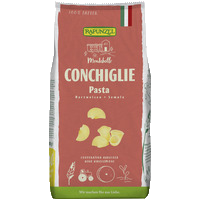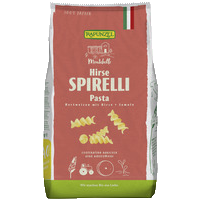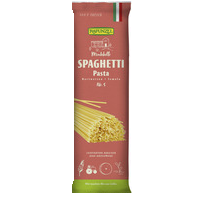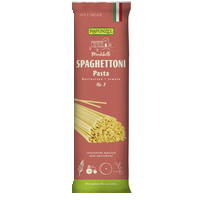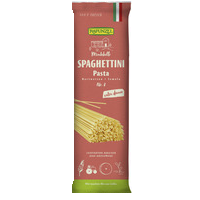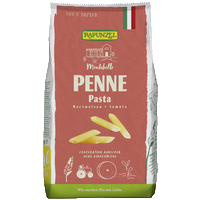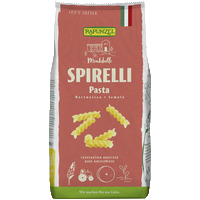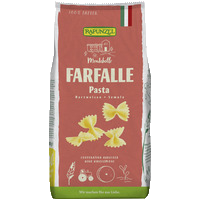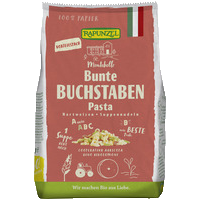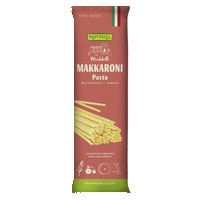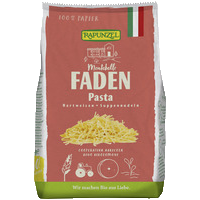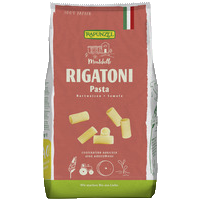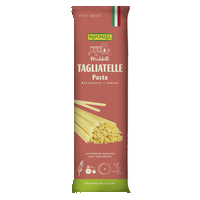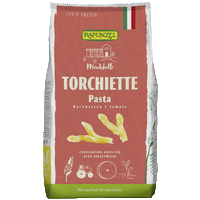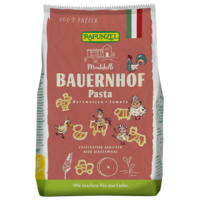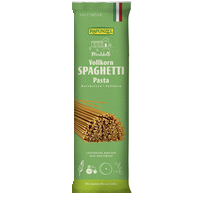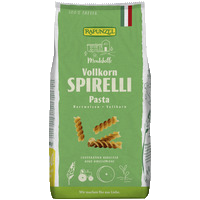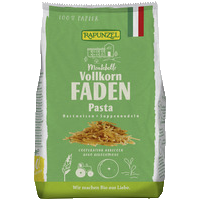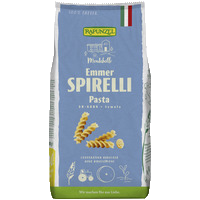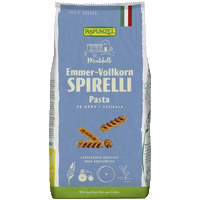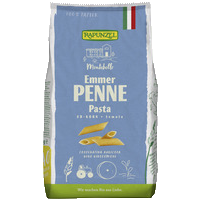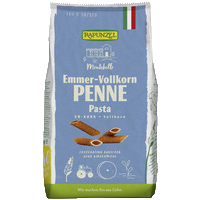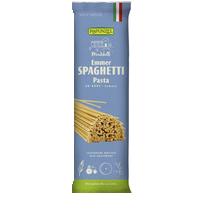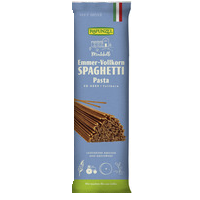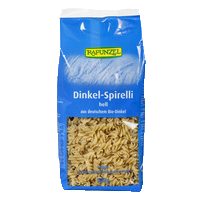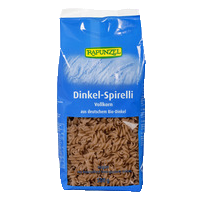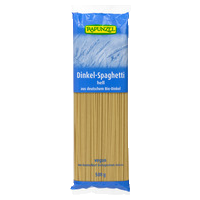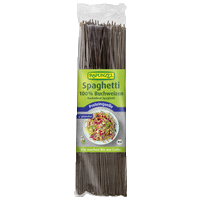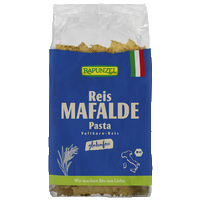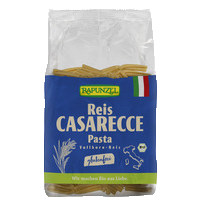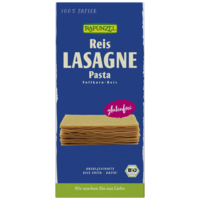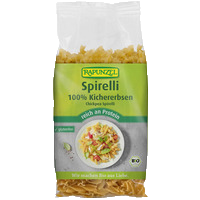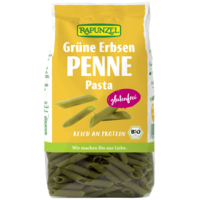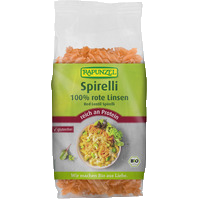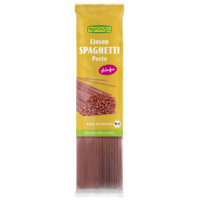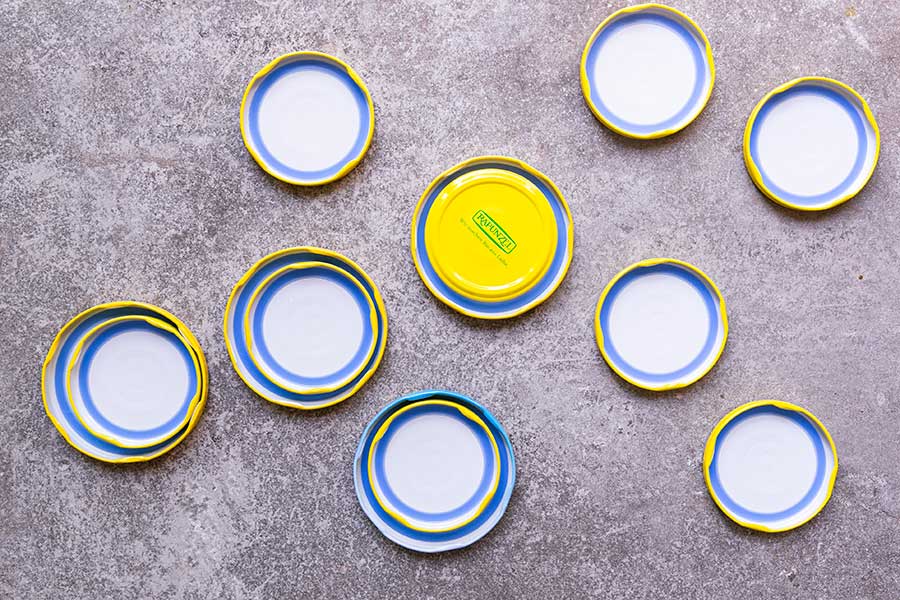Whether made from ancient grains, classic wheat, pulses or rice, whether short, long, twisted, smooth, slanting, thin or thick – with almost 40 varieties in the Rapunzel pasta range, everyone will find their favourite type.
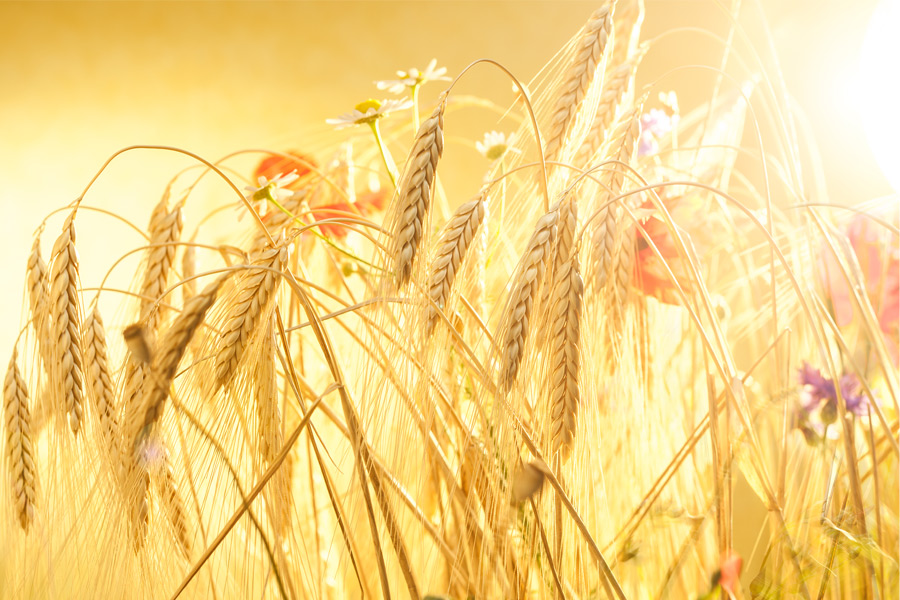
Product Knowledge: Emmer-Pasta
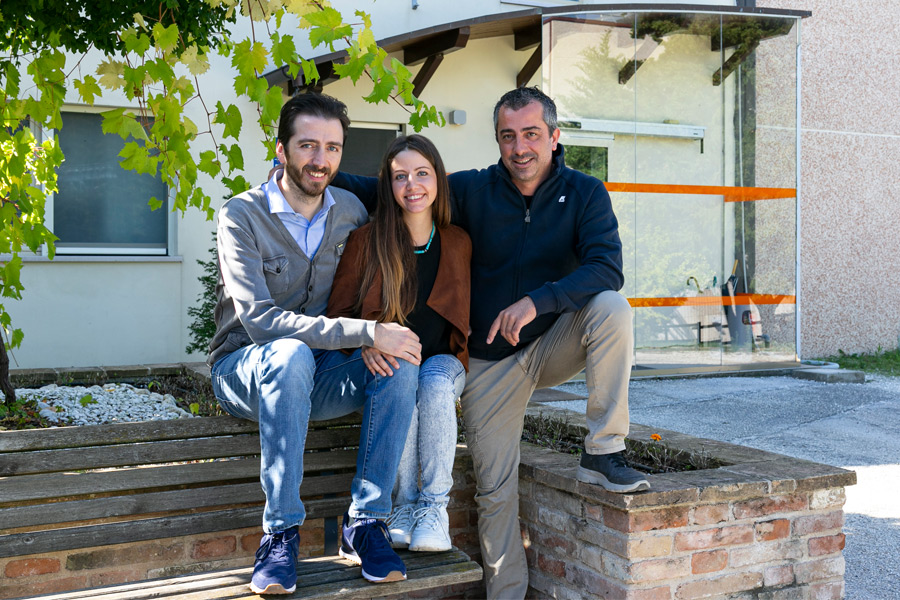
Suppliers Portrait: Pasta from the Pastificio Gino Girolomoni
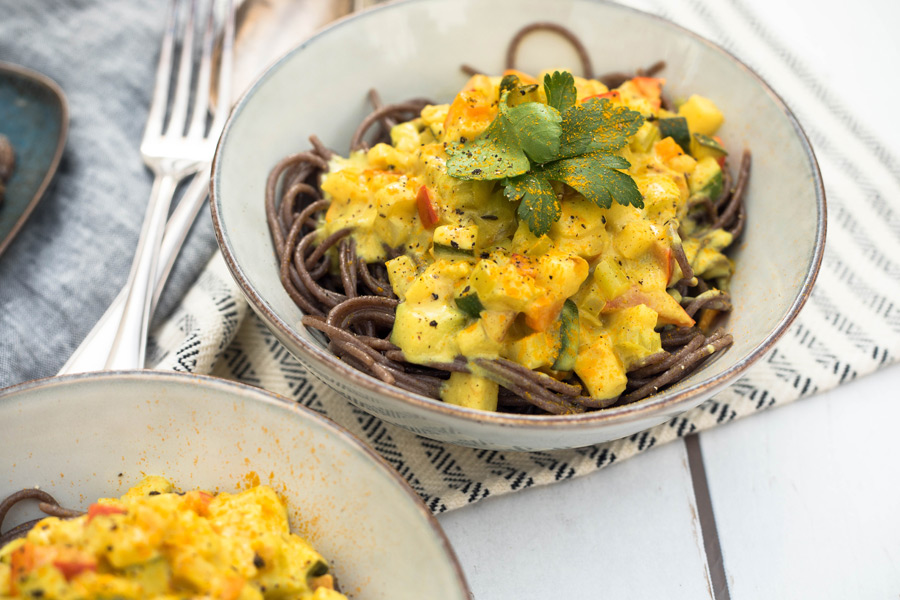
Legume pasta: high in protein, low carb and full of minerals
Pasta made from ground semolina
The classic! Try out the different shapes – from soup noodles to torchiette.
Pasta made from emmer and spelt
Ancient grains packaged in pasta form – unadulterated enjoyment with pasta made from emmer and spelt.
Gluten-free pasta
For all those who cannot tolerate gluten or want a nice change on their plate of noodles.
Interesting facts about pasta

Product knowledge: Emmer pasta
Have you ever heard of ancient grains? What is behind emmer pasta?

How to do it: Legume pasta
Important facts about gluten-free pasta. What is pulses, rice and buckwheat pasta all about?

Supplier Portrait: Pasta from Italy
Our Pastificio Gino Girolomoni is located in the middle of an idyllic hilly landscape in the Marche region and has been an organic pioneer from the very beginning. Come with us to Isola del Piano.
You might also be interested in:
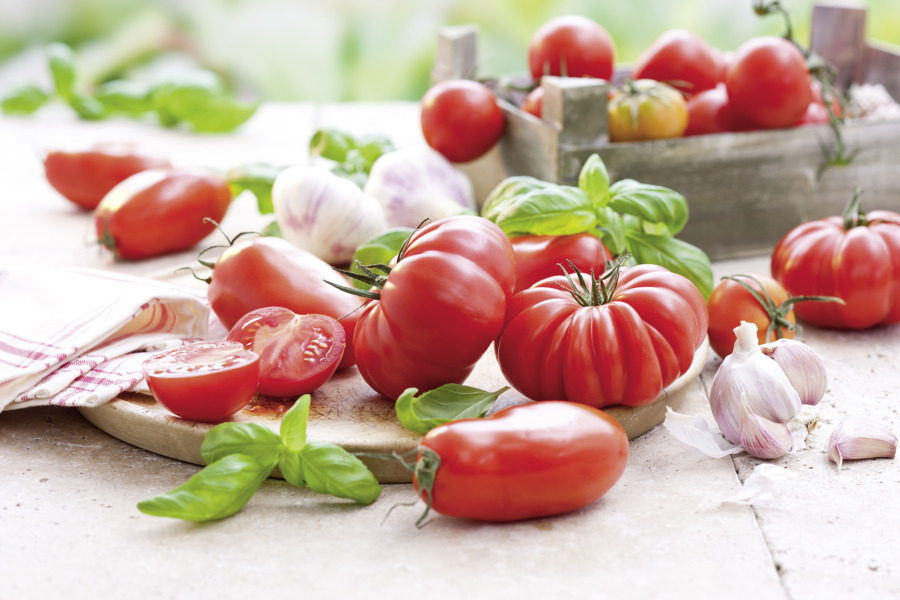
Tomato & vegetable sauces
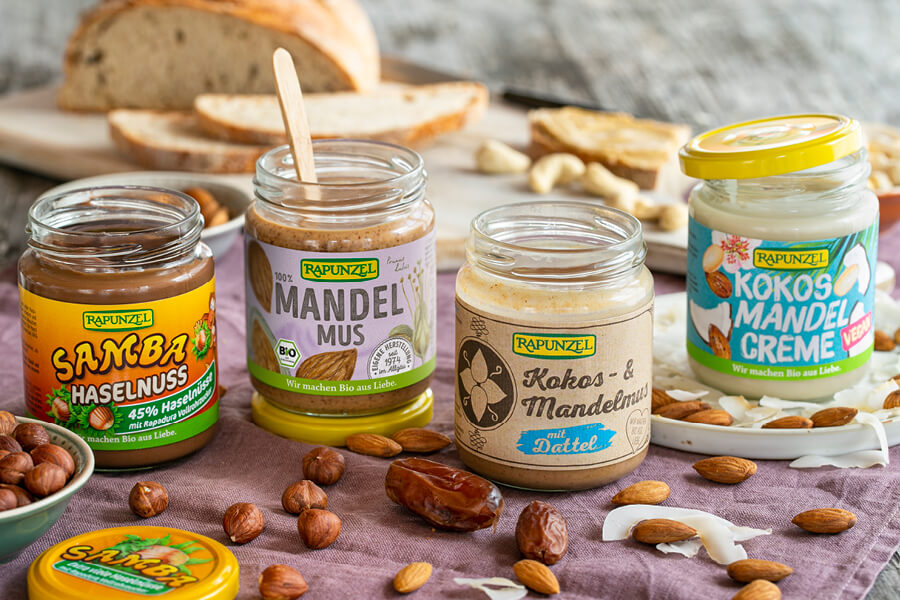
Organic manufacturer

Real organic
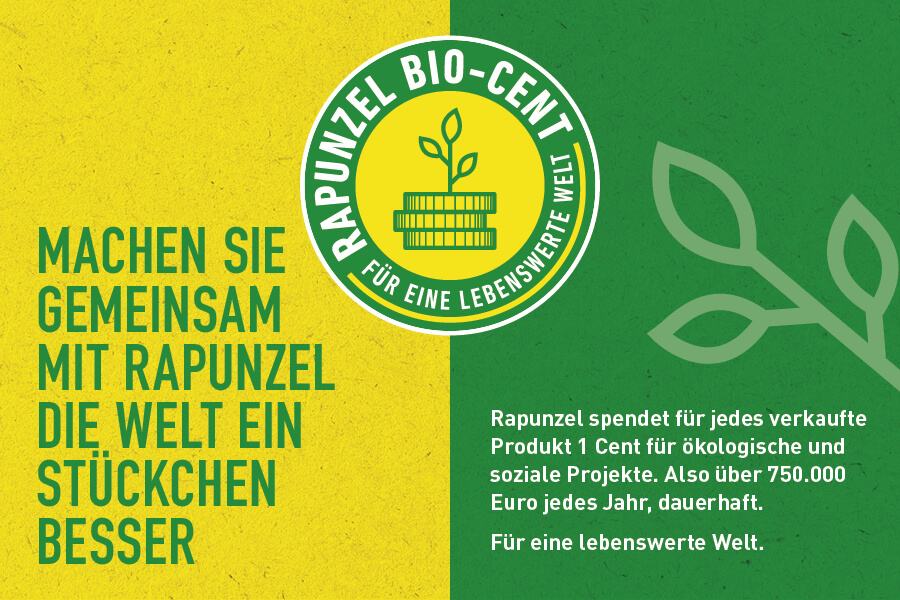
Bio-Cent
FAQ about Pasta
Gluten, also known as gluten protein, is a group of certain proteins found in cereal grains such as wheat, rye, barley, and oats.
The gluten content is of decisive importance for the baking properties of a flour. Gluten protein binds up to three times its weight in water when it becomes moist. In the process, it develops rubber-like, elastic properties. Like a skeleton, the gluten threads run through the bread dough and ensure that a fine-pored, loose dough forms. The quantitatively and qualitatively highest gluten is provided by wheat, to which it also owes its excellent baking properties.
Some people are allergic to this protein due to a metabolic disorder. With sprue or coeliac disease, the medical names for this intolerance, a lifelong gluten intolerance remains. Coeliac disease and sprue are chronic diseases of the small intestine that manifest in childhood or do not appear until adulthood. Since the organism has an intolerance to the gluten protein, those affected must eat a gluten-free diet.
The following grains are gluten-free in their unprocessed state: Rice, maize, millet, buckwheat, amaranth and quinoa.
mehr erfahren
mehr erfahren
All Rapunzel pasta still contains parts of the bran. This is quite natural for wholemeal pasta, but semola pasta is also made from so-called ground durum wheat semolina (types between 812 and 1050). These bran particles, which consist to a considerable extent of dietary fibre, darken more than the rest of the ingredients when the pasta dries and become visible as small, dark dots in the pasta. For you as a customer, this is an indication that even in semola quality there is still a proportion of bran that represents neither contamination nor mould.
mehr erfahren
mehr erfahren
The light Italian pasta is made from ground durum wheat semolina. For this purpose, the bran is sieved off and thus contains only 50% of the germ. Classic pasta semola contains approx. 65% of the whole grain, which corresponds to an ash content (= flour type) of approx. 850 on average. The so-called “flour type” is usually only a common indication for flour, but this number provides information about the ash content of the milled grain product and suggests the amount of husk in it.
mehr erfahren
mehr erfahren

